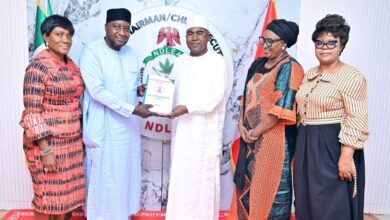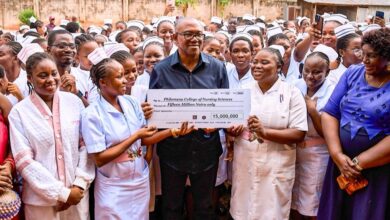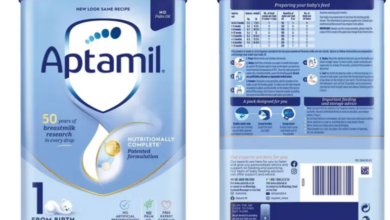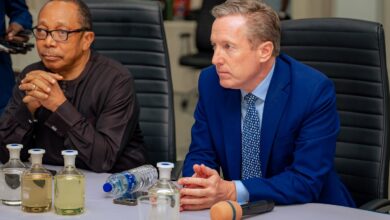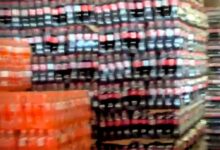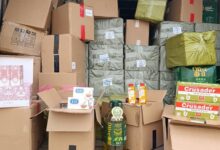Albinism Association Decries Exclusion from Primary Healthcare, Demands Implementation of Budgetary Commitments
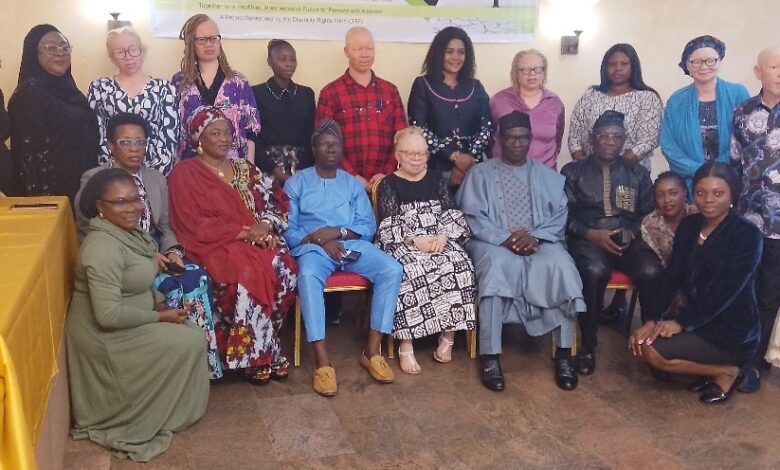
The Albinism Association of Nigeria (AAN) has expressed dissatisfaction over the continued exclusion of Persons with Albinism (PWAs) from primary healthcare services in Nigeria.
AAN also called for the full implementation of National Policy on albinism, adequate budgetary allocations, and strengthened institutional accountability.
These remarks were made during a two-day capacity building workshop supported by the Disability Rights Fund (DRF), themed “Strengthening Advocacy, Leadership, and Climate Action Capacity of AAN Technical Staff and Community Members”, held at Casa De Lucy Hotel in Abuja from July 9 to 10.
The workshop brought together members of the AAN’s technical team, national leadership, chapter representatives, and community members from across the country.
AAN expressed gratitude to its leadership, led by Dr. Mrs. Bisi Bamishe, for providing a platform for staff, community members, and stakeholders to build capacity on key thematic areas critical to the dignity and survival of PWAs. It also acknowledged the support of the DRF, which made the workshop possible.
The Association further recognised the technical support of facilitators, including health experts and advocacy practitioners, for their insightful contributions to the success of the event.
“We particularly acknowledge the presence of the Federal Ministry of Health, the media, AAN FCT Chapter, and the support of the AAN Technical Unit in driving data-driven learning throughout the workshop,” the Association stated.
Following extensive deliberations, participants identified and highlighted critical issues affecting the effectiveness of advocacy, health rights access, and climate resilience among PWAs in Nigeria, including Weak Advocacy Structures, Health Service Gaps, Disproportionate Climate Impact, Media Underutilisation, Limited Community Engagement, and Fragmented Action Planning.
On Weak Advocacy Structures, the participants noted that most (if not all) AAN chapters lack well-structured advocacy frameworks to engage government institutions, resulting in limited influence on disability-related policies and implementation processes.
Regarding Health Service Gaps, they highlighted that despite ongoing awareness campaigns, persons with albinism continue to face systemic exclusion from primary healthcare programs, particularly in rural areas. They also noted limited access to dermatological care, vision support, and essential products such as sunscreen and protective clothing.
In relation to Disproportionate Climate Impact, participants pointed out that PWAs are disproportionately impacted by climate change due to their heightened sensitivity to sunlight and extreme heat. Yet, these specific vulnerabilities are often excluded from climate adaptation policies and emergency responses at national and state levels.
On Media Underutilisation, it was stated that community-based advocacy efforts lack sufficient collaboration with media organisations to amplify messages, counter harmful stereotypes, and influence public perception.
Under Limited Community Engagement, the workshop revealed that some community-based members of AAN are not fully equipped with the leadership and mobilisation skills needed to implement grassroots campaigns or sustain chapter-level initiatives.
With respect to Fragmented Action Planning, participants acknowledged that there is a noticeable lack of coordinated action plans within chapters, leading to fragmented and unsustainable interventions, with limited impact and tracking.
The workshop featured four major thematic sessions:
Session 1: Understanding Advocacy – Concepts, Tools, and Strategies: Participants explored the core principles of rights-based advocacy, stakeholder mapping, policy engagement, and communication strategies. The session also examined barriers to inclusive advocacy and how to address them through evidence-based approaches.
Session 2: Health Rights and Access to Services for PWAs: Led by a public health expert, this session stressed the need to mainstream albinism-related health concerns into national health frameworks. Participants were introduced to health rights provisions under the National Health Act and Universal Health Coverage (UHC) schemes.
Session 3: Leadership and Community Mobilisation: Participants discussed how transformational leadership can drive inclusive development at chapter and national levels. Tools for effective community engagement, coalition-building, and intergenerational leadership succession were shared.
Session 4: Media Advocacy and Climate Action: This session addressed how to leverage traditional and digital media to raise awareness about the intersection of albinism and climate change. Emphasis was placed on compelling storytelling, visual documentation, and the use of inclusive language.
Similarly, the workshop included two group sessions focused on identifying pressing advocacy needs in participants’ communities, exploring the impact of climate change on PWAs, and designing practical adaptation responses. Each group presented their findings and drafted preliminary chapter-level action plans.
Following the sessions, the workshop resolved that all AAN state chapters should establish or strengthen advocacy teams to interface with government institutions and development actors.
Health-based advocacy must be prioritised, including engagements with the Ministry of Health, primary healthcare agencies, and relevant NGOs, to secure free access to skin care and eye care products/services for PWAs.
AAN will integrate climate advocacy into its programming by sensitising members on UV protection, early warning systems, and inclusive climate dialogues.
Each chapter shall develop and adopt a localised action plan tailored to its community context, guided by timelines, measurable outcomes, and reporting mechanisms.
Other resolves are the AAN national secretariat shall facilitate a mentorship network that supports peer learning between experienced advocates and emerging leaders within the association.
Strategic partnerships with media houses will be cultivated at both national and community levels to amplify AAN’s advocacy agenda and public education campaigns.
AAN shall push for the full implementation of the National Policy on Albinism, with particular emphasis on state-level adoption, budgetary allocation, and institutional accountability mechanisms.
The Albinism Association of Nigeria called on stakeholders to support its aspirations, including:
– Federal and State Governments: To mainstream the needs of PWAs into healthcare, climate change, education, and disability inclusion programs.
– Development Partners and Donors: To provide technical and financial support for ongoing capacity building, advocacy initiatives, and data collection to inform policy change.
– Media Organisations: To serve as allies in changing harmful narratives and supporting PWA visibility and inclusion.
– Civil Society and OPDs: To collaborate with AAN in building inclusive platforms and advocating for the rights of persons with albinism.
– Traditional and Religious Leaders: To help dismantle discriminatory cultural beliefs and promote respect and protection for PWAs at the grassroots.
The Association reaffirmed its commitment to driving a unified, inclusive, and strategic agenda for the protection and empowerment of persons with albinism in Nigeria.
AAN emphasised that the workshop has equipped participants with knowledge, tools, and networks to amplify its voice, strengthen chapter leadership, and influence national discourse on health equity, disability inclusion, and climate justice for PWAs.
It pledged to translate the outcomes of the workshop into measurable actions across all communities and state chapters.


